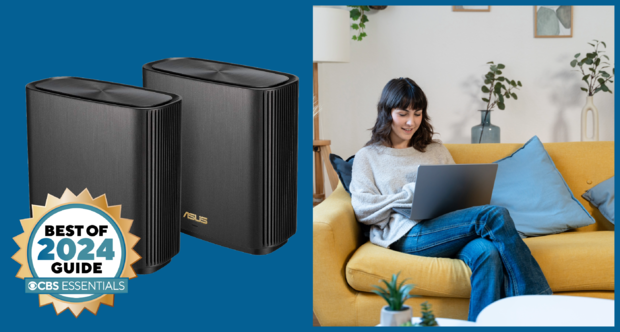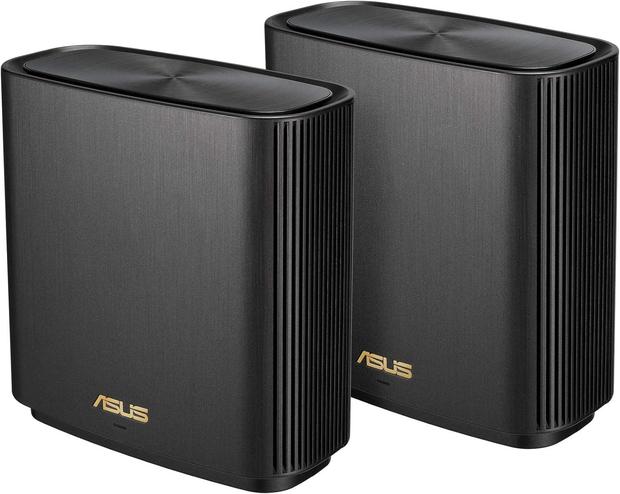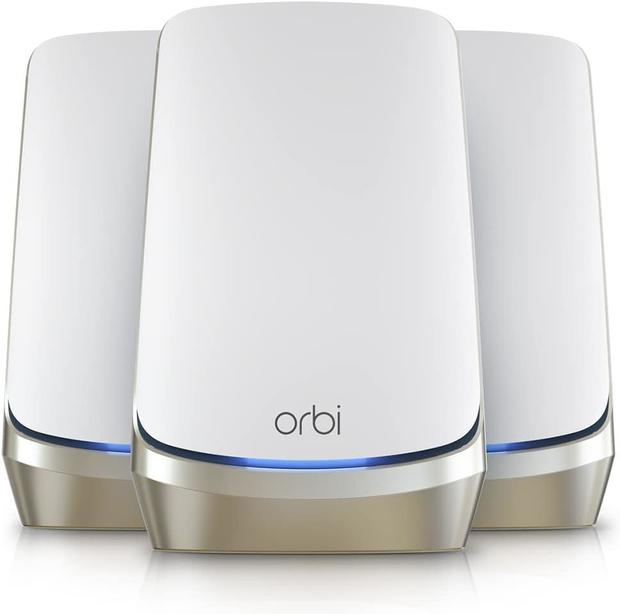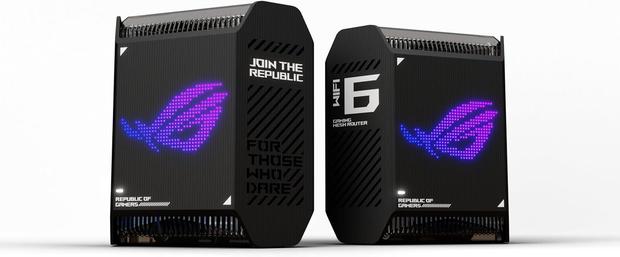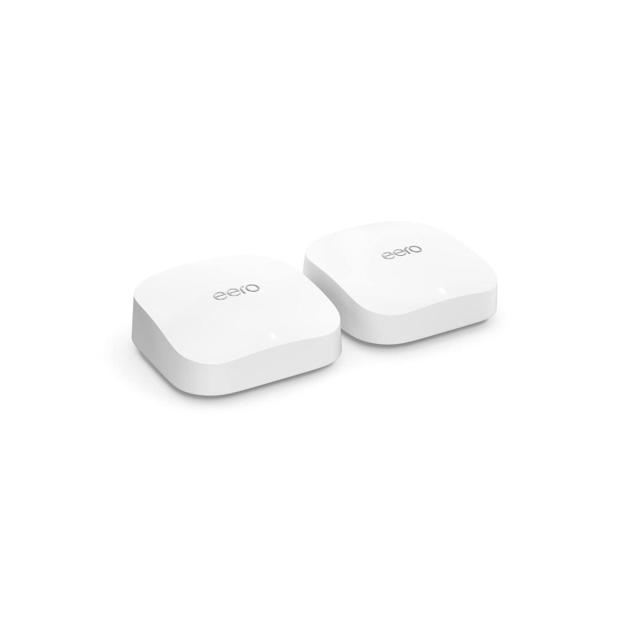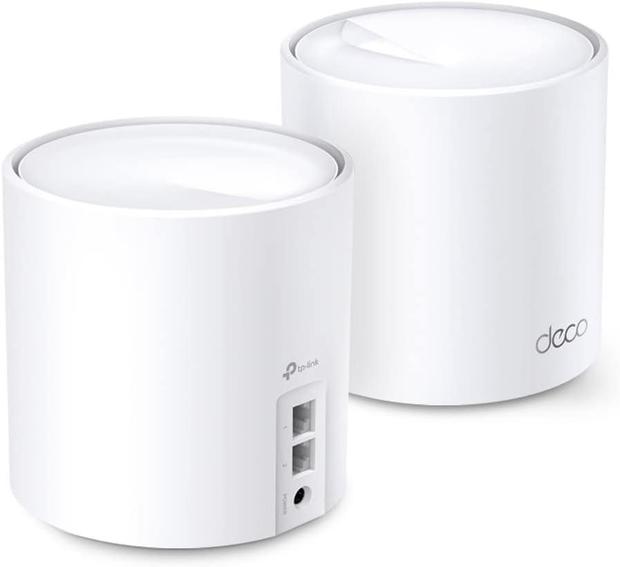The 5 best Wi-Fi mesh systems in 2024
Looking to improve your Wi-Fi signal without having to run cables through every room? Sure, a router can offer blazing fast speeds and solid connectivity, but larger homes may need more. Mesh Wi-Fi systems are your go-to solution for a strong and speedy internet connection. The ideal mesh system keeps you connected in every corner of your home. Whether you're streaming high-definition movies, gaming online, or working from home, a mesh Wi-Fi setup makes sure you never have spotty internet.
The best systems offer robust coverage, lightning-fast speeds and reliable performance that won't leave you hanging. But they're not just about getting you online; with advanced features like parental controls, guest networks, and smart home integration, these mesh systems can transform your home into a smart, interconnected haven.
Read on to discover our top picks for mesh Wi-Fi systems, from the Asus ZenWiFi AX to the Netgear Orbi AXE11000.
Our top Wi-Fi mesh systems for 2024
- Best overall Wi-Fi 6 mesh system: Asus ZenWiFi AX (XT8 2-Pack)
- Best Wi-Fi mesh system for large homes: Netgear Orbi 960 Series Quad-Band WiFi 6E Mesh System
- Best Wi-Fi mesh system for gamers: Asus ROG GT6 Wi-Fi 6
- Best Wi-Fi mesh system for smart homes: Eero Pro 6E
- Best budget Wi-Fi mesh system: TP-Link Deco M3
Asus ZenWiFi AX XT8 (2-Pack)
The Asus ZenWi-Fi AX (XT8) is a decently priced option that's versatile and reliable enough for most households. Wi-Fi 6 capabilities deliver strong and robust coverage throughout your home; a single unit of this tri-band system can cover up to 2,750 square feet, which generally spans four rooms. For larger spaces, a second unit can extend the reach to 5,500 square feet, which means coverage for up to six rooms.
Performance-wise, the XT8 excels with wireless speeds of up to 6,600 Mbps. It's more than enough for things like 8K video, plus it supports a ton of devices, so you're covered -- whether you're on TikTok on your phone all day, or the kids like to spend all evening on their PlayStation consoles. Setup with the Asus Router app is straightforward as well, offering step-by-step guidance to get you up and running.
The XT8 also provides a suite of security features and parental controls without the need for a subscription. It's available as a single unit or in a two-pack for extended coverage in larger homes. One caveat: The system is limited to a maximum of two nodes, so coverage is fixed at a maximum of 5,500 square feet. Though it may not support Wi-Fi 6E or Wi-Fi 7 standards, the XT8's capabilities will meet, and likely exceed, most users' connectivity requirements, all for a great price.
Netgear Orbi 960 Series quad-band WiFi 6E mesh system
The Orbi mesh Wi-Fi system, featuring Wi-Fi 6E technology may be a splurge, but it's well worth the money for anyone with plenty of ground to cover.
Each unit extends your Wi-Fi footprint by a massive 3,000 square feet. While this system may come with a higher price tag, the investment is often justified for anyone with up to 9,000 to 12,000 square feet. Beyond that, the Orbi can support up to 200 devices.
There are plenty of security features as well, including Netgear's Armor suite. This security package offers more layers of protection, like an integrated VPN to keep your online activities secure. It's worth noting that these security services are complimentary for the first year, with an annual fee after that.
You can choose from multiple options to make sure you get the Orbi setup you need. The two-pack comes with a router and one satellite, while the three-pack includes a router and two satellites.
Asus ROG GT6 Wi-Fi 6
The Asus ROG Rapture GT6 is a gamer-centric mesh Wi-Fi system that stands out for its impressive performance as well as its surprising affordability. It's a tri-band Wi-Fi solution that caters to PC and console gamers alike. Whether you prefer wired or wireless connections, the GT6 system serves up lightning-fast internet connectivity for a lag-free experience.
Its dedicated mesh backhaul, which is important for seamless, latency-free online gameplay, makes a huge difference. This system uses an additional antenna to optimize signal detection, which can boost its overall performance by up to 15% compared with traditional antennas. That translates to more stable and faster connections for intense gaming sessions.
Coverage-wise, the GT6 system can blanket up to 5,800 square feet, or roughly six rooms. The base package includes the primary AiMesh router and one AiMesh node, which means it can be used for both medium and larger homes. Gamers will particularly appreciate the system's focus on speed and performance, not to mention its cost-effectiveness. It's a great pick for anyone who depends on a rock-solid connection while getting their game on.
Eero Pro 6E
The Eero Pro 6E stands out in the mesh Wi-Fi market for its tri-band Wi-Fi 6E networking and user-friendly setup. It's one of the quicker and easier systems to install, and can be set up in about 20 minutes. Each unit covers a substantial 2,000 square feet, so a three-pack can provide Wi-Fi coverage across 6,000 square feet.
The Eero Pro 6E delivers up to a gigabit of data per second. Its inclusion of a 2.5Gbps Ethernet port also makes it future-proof -- ready if you decide to upgrade to multi-gig internet.
It's also a great choice for smart homes. It features a built-in Zigbee host, which means you can use your router as a hub for compatible tech. Additionally, these routers are compatible with Amazon Echo devices, which can act as extenders for your mesh network.
To keep your smart home running without a hitch, you'd do well to grab the Eero Pro 6E.
TP-Link Deco X20
The TP-Link Deco X20 mesh system is a great, budget-friendly option. It's not only affordable but also compact and straightforward to set up, making it a practical choice for families and anyone who doesn't want to spend an arm and a leg for an expansive mesh system.
Ideal for larger homes, the Deco X20, sold in a 3-pack, can cover up to 5,800 square feet and can manage up to 150 devices. Each dual-band unit in the Deco X20 system comes equipped with two gigabit wired connections.
The system is user-friendly, thanks to the Deco app, which makes setup super simple. Its intuitive menus make controlling your network a breeze, even if you're a newbie to mesh system setup.
Besides its networking capabilities, the Deco X20 also emphasizes security. It supports WPA3 encryption and comes with a lifetime subscription to TP-Link HomeCare, which includes security and antivirus features. It's a fantastic bang for your buck, and it's on sale right now for $115, which is 23% off its normal price of $150.
What is a mesh Wi-Fi system?
Mesh Wi-Fi systems differ significantly from traditional Wi-Fi routers. Instead of a single access point, these systems rely on multiple devices across your home, each acting as an individual access point. The number of devices required depends on the size of your home and each mesh router's range.
The primary advantage of mesh Wi-Fi: extensive coverage. It's not just about spreading Wi-Fi across a larger area; mesh systems manage Wi-Fi traffic, minimize disruptions and lag. This makes them ideal for high-demand online activities, such as streaming 4K content, uninterrupted gaming, or smooth video conferencing.
When choosing a mesh router, you'll encounter mainly dual-band and tri-band options. Dual-band routers use a 2.4GHz and a 5GHz frequency band. Tri-band routers add an extra 5GHz band, providing enhanced speeds and supporting more devices. This makes tri-band systems more suitable for larger homes with multiple users and devices, such as computers, tablets, phones, and smart TVs.
If you're looking for the pinnacle of performance, you should also know about quad-band mesh routers. These high-end devices offer exceptionally fast data transfer speeds, reaching up to 10.8 Gbps. The cost may be a bit steep, but they're ideal for home businesses.
Do you need a mesh Wi-Fi system?
Figuring out if you need a mesh Wi-Fi system boils down to a few key things: how big your place is, how many gadgets are connecting to the internet, and how well your current Wi-Fi gets the job done. Mesh Wi-Fi is a game-changer for sprawling houses or places with more than one floor where you might find dead spots or weak signals. Set up a few of these mesh satellites around your house, and you should have solid Wi-Fi wherever you go in the home.
If you have a plethora of phones, laptops, smart TVs, or other smart devices at home, you may be a good candidate for a mesh network as well. it can keep up with your devices' demands in a much more efficient way. This is a big deal if you have family members who are always online gaming, binge-watching in HD, or doing anything else that requires a lot of bandwidth.
If your home has thick walls, or it's spread out over a few floors, you also might have noticed Wi-Fi doesn't quite cut it in some spots. Or maybe you're in an apartment block where everyone's Wi-Fi is competing for bandwidth. Mesh networks shine in these situations because they punch through interference and keep the signal strong.
That being said, if your home isn't that large, you don't own or use that many devices, and your current router is working for you, sticking with a regular router should work just fine.
